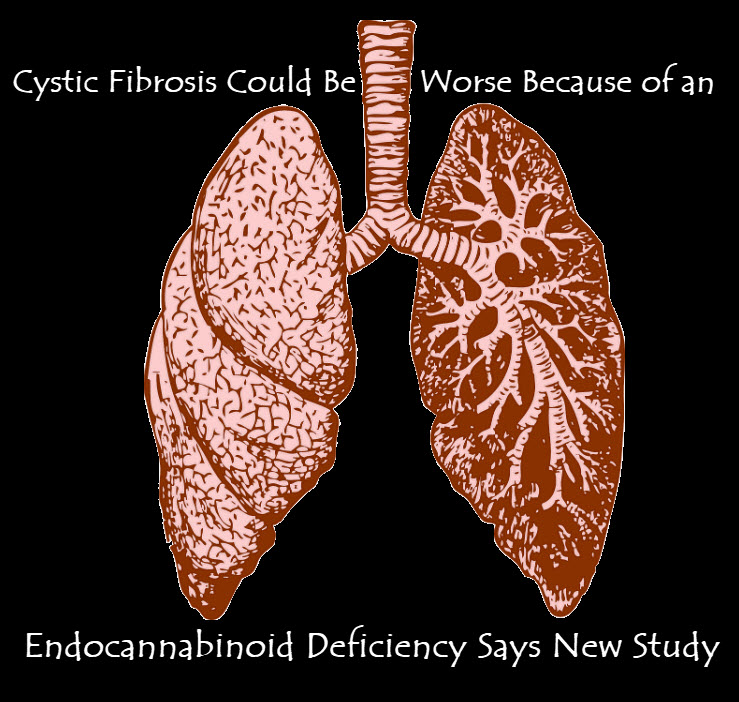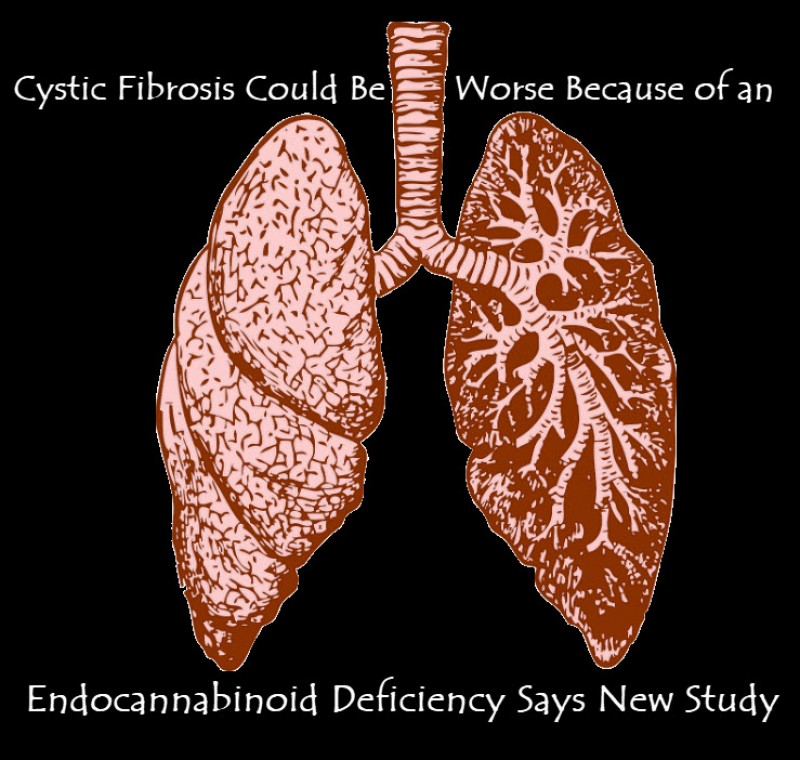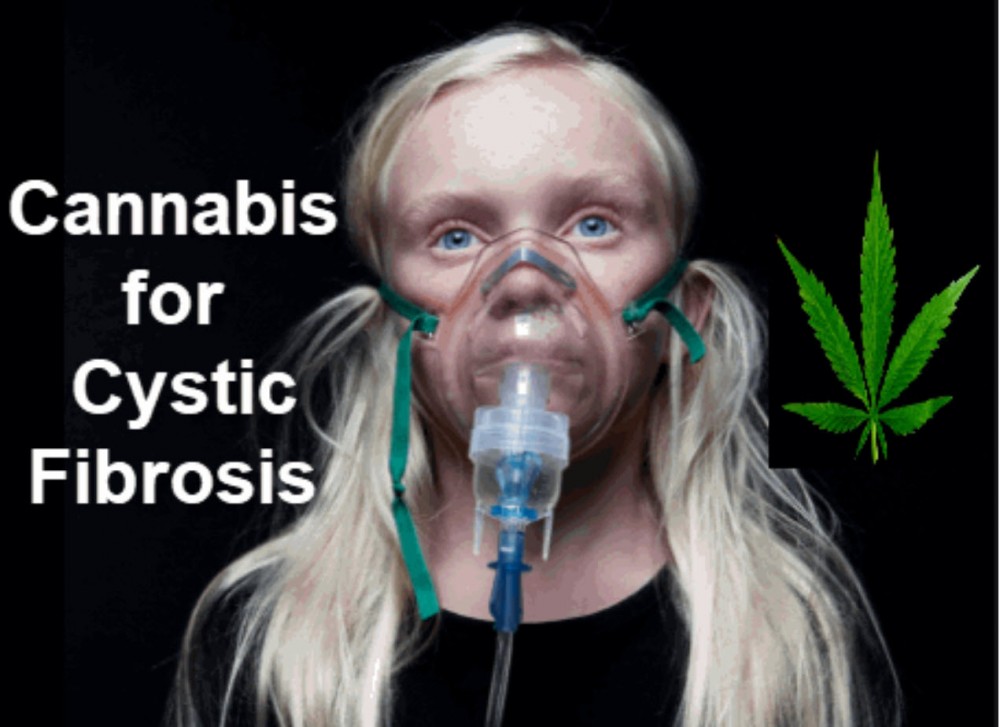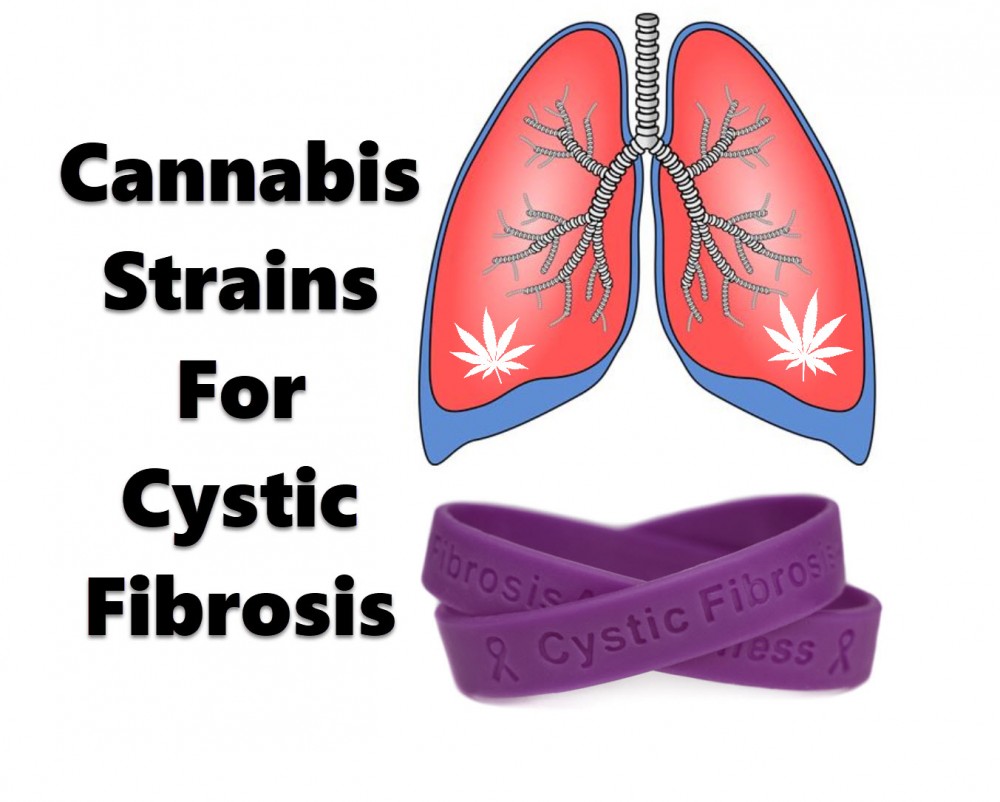Cystic Fibrosis Could Be Worse Because Of An Endocannabinoid Deficiency

Cystic Fibrosis is an inherited condition that causes damage to the lungs, digestive system, and other organs. Yet again, in this time where we are threatened by COVID-19, a person suffering from Cystic Fibrosis would not want to be subjected to this respiratory infection. Cystic Fibrosis is life-threatening as it is. It shortens the lifespan of a person significantly, and up until now, there is no cure for this genetic disorder. Doctors focus mostly on the symptoms and by treating them, some form of relief is offered.
What is Cystic Fibrosis?
As mentioned above, Cystic Fibrosis is a genetic disorder. It is caused by multiple gene mutations. The most common of these genes is the cystic fibrosis transmembrane conductance regulator (CFTR) protein. Cystic fibrosis affects the cells that produce mucus, sweat, and digestive juices. In a normal person, these fluids are thin and slippery. People with cystic fibrosis have sticky and thick secretions. The whole function of acting as a lubricant gets turned around, and now the secretion plugs up tubes, ducts, and passageways. It is especially prominent in the pancreas and lungs.
Cystic Fibrosis can show symptoms already as early as birth. Newborns might have no bowel movements for at least 2 days after birth. Children with Cystic Fibrosis tend to grow slower, and they are often underweight. The effects might be more severe in some, but the most obvious symptoms are respiratory difficulties.
Cystic fibrosis is a progressive illness, but even so, with the treatment of the symptoms, people could follow ordinary lifestyles. They could go to school and work and live a relatively long life.
Why Cystic Fibrosis Sufferers Would Not Want COVID-19
By just looking at the symptoms of Cystic Fibrosis, it is clear that a person diagnosed with this disease should take extra care not to be infected with COVID-19. Some of the effects that cystic fibrosis has on the respiratory system are:
Mucus-filled cough
Congestion
Difficulty breathing
Pneumonia
Sinus infection
Sinus pain
Poor lung function
Wheezing
Low tolerance for exercise
Breathlessness
Inflammation in nasal passages
But apart from the respiratory system, the digestive system is also affected. What makes it complex is that weight loss or weight gain could be related to symptoms of cystic fibrosis. The thick mucus inhibits the movement of digestive enzymes from the pancreas to the small intestines. It blocks the tubes, which makes it difficult for the body to absorb nutrients food.
Symptoms of cystic fibrosis on the digestive system are:
- Lack of appetite
- Nausea
- Constipation
- Pale stools
- Abdominal pain
- Foul-smelling stools
- Greasy stools
- Intestinal blockage
- Poor growth
The body will also secrete more salt, the skin tastes very salty. As it is a genetic disease, kids are generally screened when they are born. There are more than 1700 mutations possible, which makes genetic testing exceedingly difficult. The most common mutations are looked for. Sometimes, a person ends up being a carrier because the screening did not pick the mutation up.
The Endocannabinoid system and Cystic Fibrosis
The endocannabinoid system is involved in mediating the symptoms of cystic fibrosis. There is still a lack of studies when it comes to supporting the findings, but there are studies that concluded that there are connections between the physiological effects of the endocannabinoid system and cystic fibrosis. With this in mind, it is then logical to think that cannabinoids from the cannabis plant would have a positive effect on treating symptoms related to cystic fibrosis.
Why Cannabis is Good for Cystic Fibrosis
Medical cannabis is not a cure for CF, but it offers relief to many of the symptoms of the disease. The cannabinoids in the plant interact in many ways with the endocannabinoid system and help to bring balance to an imbalanced system. Medical cannabis might not wipe the symptoms out, but it could relieve the severity of the symptoms in a significant way.
One of the symptoms of CF is malnutrition. Malnutrition becomes more severe as the illness progresses. People feel nauseous and therefore not inclined to eat. Then they also struggle with diarrhea and vomiting that makes it even more difficult to absorb sufficient nutrients. Cannabis is known for stimulating appetite and has great success in treating people with wasting syndrome.
The activation of cannabinoid receptors slows the movements of intestines down preventing diarrhea. Diarrhea is often a symptom of cystic fibrosis. The function of the pancreas becomes impaired, and the intestines show an inability to digest and absorb nutrients.
An imbalance of fatty acids leads often to lung infections. Endocannabinoids are made from fatty acids, and when there is not enough, there is an endocannabinoid deficiency. Using THC to treat the symptoms of CF in children, prevented motor delays and the development of anxiety as they reach adulthood. This leads to the conclusion that an endocannabinoid deficiency could contribute to those factors.
Cannabis also has anti-inflammatory properties that help to combat inflammation response caused by the destruction of lung tissue.
Conclusion
All the therapeutic benefits that cannabis render, could help to relieve the symptoms of Cystic Fibrosis and help the person to have a better quality of life.
MARIJUANA FOR CYSTIC FIBROSIS, READ MORE...
CAN MEDICAL MARIJUANA HELP WITH CYSTIC FIBROSIS?







